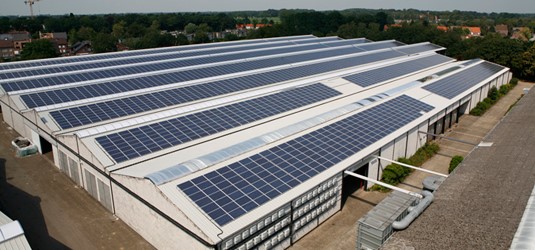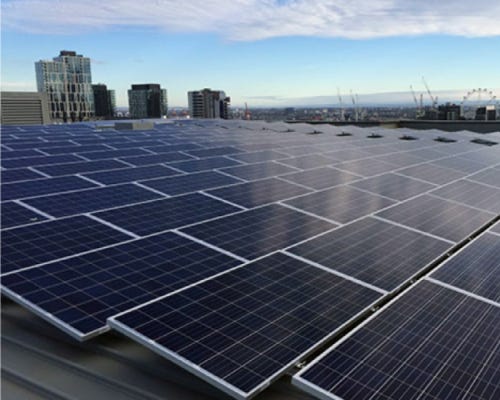Rooftop Solar Systems: Harnessing Sustainable Energy

Harnessing Sustainable Energy: Rooftop Solar Systems
In the era of environmental consciousness, Rooftop Solar Systems have emerged as powerful contributors to sustainable living. From reducing carbon footprints to enhancing energy independence, these systems are transforming rooftops into hubs of clean energy generation.
A Greener Tomorrow: The Promise of Rooftop Solar Systems
Rooftop Solar Systems hold the promise of a greener tomorrow by harnessing the abundant energy radiating from the sun. This eco-friendly solution enables individuals, businesses, and communities to actively participate in the transition towards cleaner and more sustainable energy sources. The rooftops, once passive spaces, become active contributors to environmental preservation.
Discover the Potential: Rooftop Solar Systems at LucasBarrios.com
Explore the vast potential of Rooftop Solar Systems at LucasBarrios.com. This comprehensive resource delves into the intricacies of solar energy harnessing on rooftops, offering insights into the benefits, installation processes, and the transformative impact on energy consumption. Learn how Rooftop Solar Systems can be a catalyst for positive change in your community.
Energy Independence: Reducing Reliance on the Grid
Rooftop Solar Systems empower individuals and businesses to reduce their reliance on traditional power grids. By generating electricity on-site, rooftop solar panels contribute to energy independence. This not only offers a degree of autonomy in energy consumption but also provides a reliable source of power, especially in regions prone to power outages or disruptions.
Cost Savings: Rooftop Solar Systems as Financial Assets
Beyond environmental benefits, Rooftop Solar Systems are financial assets, offering long-term cost savings. While the initial investment in solar panel installation may seem significant, the reduction in monthly energy bills and potential government incentives contribute to a favorable return on investment over time. Rooftops become not only energy producers but also financial contributors.
Low Maintenance, High Efficiency: The Appeal of Solar Rooftops
One of the key advantages of Rooftop Solar Systems is their low maintenance requirements coupled with high energy efficiency. Solar panels are designed to withstand various weather conditions and require minimal attention once installed. This simplicity, combined with the efficiency of converting sunlight into electricity, makes rooftop solar an appealing and hassle-free choice for sustainable energy.
Environmental Impact: Reducing Carbon Footprints
Rooftop Solar Systems play a pivotal role in reducing carbon footprints. Traditional energy sources, often reliant on fossil fuels, contribute to air pollution and greenhouse gas emissions. By opting for solar energy, individuals and businesses actively participate in mitigating climate change, fostering cleaner air, and preserving the planet for future generations.
Net Metering: Putting Excess Energy to Good Use
Net metering is a crucial aspect of Rooftop Solar Systems, allowing excess energy generated during sunny periods to be fed back into the grid. In return, this surplus energy can be credited against times when solar production is lower, such as during nighttime or cloudy days. This dynamic approach ensures optimal use of solar resources and maximizes the benefits of rooftop installations.
Community Sustainability: Rooftop Solar Initiatives
Rooftop Solar Systems extend beyond individual benefits to contribute to community sustainability. Initiatives that promote the installation of solar panels on residential and commercial rooftops foster a collective commitment to environmental responsibility. Communities embracing solar energy become beacons of sustainable living, inspiring neighboring regions to follow suit.
Technological Advancements: The Future of Rooftop Solar
As technology advances, the future of Rooftop Solar Systems looks increasingly promising. Innovations in solar panel efficiency, storage solutions, and integration with smart home technologies are shaping the next phase of rooftop solar. The potential for further reducing costs, enhancing energy storage capacities, and improving overall system performance positions Rooftop Solar Systems at the forefront of the global shift towards renewable energy.
In conclusion, Rooftop Solar Systems represent a transformative force in the journey towards sustainable living. By harnessing the power of the sun, rooftops evolve from passive structures to active contributors to clean energy production. As individuals, communities, and businesses embrace the potential of Rooftop Solar Systems, they collectively contribute to a more sustainable and environmentally conscious future.



